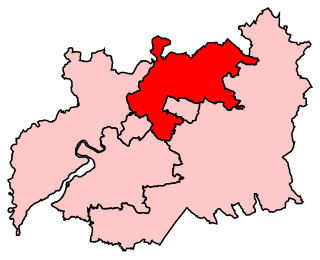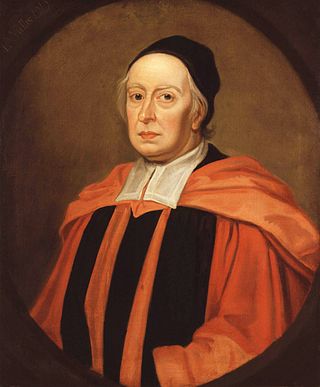Related Research Articles

Edmund Ludlow was an English parliamentarian, best known for his involvement in the execution of Charles I, and for his Memoirs, which were published posthumously in a rewritten form and which have become a major source for historians of the Wars of the Three Kingdoms. Ludlow was elected a Member of the Long Parliament and served in the Parliamentary armies during the English Civil Wars. After the establishment of the Commonwealth in 1649 he was made second-in-command of Parliament's forces in Ireland, before breaking with Oliver Cromwell over the establishment of the Protectorate. After the Restoration Ludlow went into exile in Switzerland, where he spent much of the rest of his life. Ludlow himself spelt his name Ludlowe.

Tewkesbury is a constituency in Gloucestershire represented in the House of Commons of the UK Parliament since its 1997 recreation by Laurence Robertson, a Conservative.

Sir William Butts was a member of King Henry VIII of England's court and was the King's physician.
John Parry may refer to:
Plowden may refer to:
This is a list of Sheriffs of Norfolk and Suffolk. The Sheriff is the oldest secular office under the Crown and is appointed annually by the Crown. He was originally the principal law enforcement officer in the county and presided at the Assizes and other important county meetings. After 1576 there was a separate Sheriff of Norfolk and Sheriff of Suffolk.
Events from the 1510s in England.
Edmund Dunch, 1st Baron Burnell of East Wittenham (1602–1678) was an English Member of Parliament who supported the Parliamentary cause before and during the English Civil War. During the Interregnum he sat as a member of parliament. In 1659, after the Protectorate and before the Restoration, regaining his seat in the Rump he also sat in Committee of Safety. After the restoration of the monarchy he was not exempted under the Act of Pardon and Oblivion but the titles granted to him under the Protectorate were not recognised under the restored monarchy of Charles II.

Sir Robert Sheffield was an English lawyer and Member of Parliament. He was Speaker of the House of Commons between 1512–1513.
John Clarke, also known as John Clark, John Clerk, and John Clerke, was an English politician and Justice of the Peace who sat in the House of Commons from 1653 through 1660, and was a colonel in the Parliamentary army between 1651 and 1659.

The position of Keeper of the Archives at the University of Oxford in England dates from 1634, when it was established by new statutes for the university brought in by William Laud. The first holder of the post was Brian Twyne, who prepared an index of the archives in 1631 as part of the preparatory work for the statutes: he was appointed Keeper of the Archives as a reward for his work. The archives were moved from the University Church of St Mary the Virgin into the Tower of the Five Orders in the Bodleian Library under Twyne and his successor, and some of the storage cupboards built at that time are still in use. The archives include charters, title deeds, university registers and records, and other official documentation from the university. Most of the material dates from the 19th and 20th centuries, with few photographs and no sound or video recordings.
Brian Twyne was an English antiquary and an academic at the University of Oxford. After being educated at Corpus Christi College, Oxford, and becoming a Fellow of the college in 1606, he published his one main work, a history of the university, in 1608. This was designed to prove that Oxford was older than Cambridge University, and has been described by a modern writer as a "remarkable achievement for a young scholar of twenty-eight."
John Twyne (c.1505–1581) was an English schoolmaster, scholar and author, and also Member of Parliament for Canterbury.

Simon Haynes or Heynes was Dean of Exeter, Ambassador to France, and a signatory of the decree that invalidated the marriage of Henry VIII with Anne of Cleves. He became President of Queens' College at the University of Cambridge from 1529 to 1537, and toward the end of his life, was installed Canon of Windsor at Windsor Castle.
George Reynolds was an English politician.
Thomas Somerset or Pophull was an English politician and draper.
Events from the year 1527 in Ireland.
Bernard Soysa was a Sri Lankan politician.
Twyne may refer to: